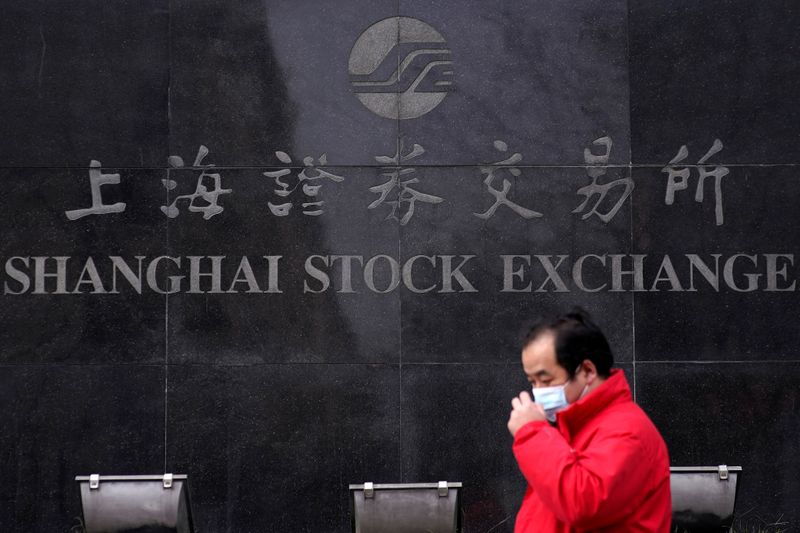Investing.com-- Most Asian stocks extended recent losses on Tuesday following weak business activity readings from Japan and Australia, while Chinese markets rebounded from pre-pandemic lows as a state-run fund began snapping up some equities.
Weak sentiment- amid persistent concerns over the Israel-Hamas war- kept any major gains limited.
While diplomatic missions to deescalate the conflict appeared to have shown some progress, missile attacks between Israel and Gaza continued. Markets were also edge over a looming Israeli ground assault on Gaza, which could mark an escalation in the conflict.
Easing Treasury yields, which retreated from multi-year peaks hit earlier this month, offered some support to stock markets, although the technology sector remained under pressure.
Weak Japan, Australia PMIs dent sentiment
Japan’s Nikkei 225 fell 0.4%, while the TOPIX slid 1% after purchasing managers’ index (PMI) data showed that Japanese manufacturing activity shrank more than expected in October, while growth in the services sector deteriorated.
The readings indicated persistent weakness in Asia’s second-largest economy, as it struggles with a resurgence in inflation.
Australia’s ASX 200 rose 0.1%, reversing some early losses and rebounding in tandem with Chinese stocks. But PMI data showed both Australian manufacturing and services activity remained in contraction through October.
Focus is now on PMI readings from the U.S., due later in the day.
Chinese stocks rebound from pre-COVID lows as state fund announces buying
China’s Shanghai Shenzhen CSI 300 index rose 0.4%, recovering from its lowest level since January 2019, while the Shanghai Composite added 0.7%, rebounding from a 11-month low.
Central Huijin Investment Co, a Chinese sovereign fund, said it purchased some exchange-traded funds (ETF) this week to support local stock markets. The fund also signaled that it plans to increase its local ETF holdings, signaling some support for Chinese stocks.
The country’s stocks were battered by growing concerns over a property market meltdown, as well as a sluggish economic recovery this year. But signs of government buying appeared to have provided some support.
Tech hit by high yields, earnings anticipation
Technology-heavy indexes were the worst performers for the day, facing continued pressure from high yields. Anticipation of several key U.S. tech earnings on Tuesday- Microsoft Corporation (NASDAQ:MSFT), Alphabet (NASDAQ:GOOGL)- along with Meta Platforms (NASDAQ:META), Intel Corporation (NASDAQ:INTC) and Amazon (NASDAQ:AMZN) later in the week kept traders largely wary of the sector, as they looked to see whether steady earnings growth from earlier this year continued through the third quarter.
While yields retreated somewhat this week, they remained in sight of multi-year highs as markets positioned for higher-for-longer U.S. interest rates.
Hong Kong’s Hang Seng index shed 0.5%, trimming some early losses after it hit a 11-month low earlier in the session. But the index remained pressured by losses in heavyweight technology stocks.
South Korea’s KOSPI fell 0.2%, while the Taiwan Weighted index sank 0.8%. Taiwan shares were also rattled by a report that China had opened a tax probe into Apple Inc (NASDAQ:AAPL) supplier Foxconn (SS:601138) Technology Co Ltd (TW:2354).
